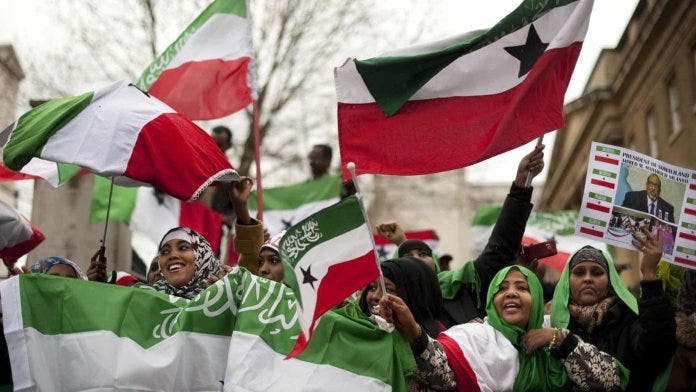
For over three decades, Somaliland has stood as a testament to resilience, democracy, and progress. Declaring independence from Somalia in 1991, Somaliland has navigated the challenges of self-governance, economic development, and international diplomacy. Despite lacking formal recognition from the global community, Somaliland’s achievements in fostering peace, democracy, and economic growth highlight its readiness to take its rightful place on the world stage.
Democratic Excellence: A Model for Africa
Somaliland’s commitment to democratic principles has cemented its status as a beacon of hope in the Horn of Africa. Since its declaration of independence, Somaliland has conducted seven peaceful elections, including the 2024 presidential election, which was widely praised for its transparency and fairness. This achievement stands in stark contrast to the political turmoil in neighboring Somalia and other parts of the region.
The country’s unique hybrid governance system combines traditional Guurti councils—composed of elders—with modern democratic institutions. This innovative model ensures that both traditional values and contemporary governance coexist harmoniously. Somaliland’s democratic process has become a model for post-conflict states worldwide, showcasing how inclusivity and innovation can foster stability.
Economic Resilience: From Berbera Port to Regional Powerhouse
Somaliland’s economic success is rooted in self-reliance and strategic development. The UAE-funded Berbera Port, which received a $442 million investment from DP World, has positioned Somaliland as a key player in international trade. The port serves as a crucial link between Africa, Asia, and Europe, offering landlocked Ethiopia a vital alternative to Djibouti for its trade needs.
Beyond its port infrastructure, Somaliland has diversified its economy through thriving agriculture, livestock exports, renewable energy projects, and technology investments. Diaspora remittances also play a critical role in sustaining economic growth, enabling Somaliland to fund development projects and reduce reliance on external aid. The country’s progress proves that international recognition is not a prerequisite for building a prosperous and self-sustaining economy.
Strategic Partnerships: Building Global Alliances
Somaliland’s pursuit of recognition has been bolstered by strategic partnerships with key allies. In January 2024, a historic Memorandum of Understanding was signed with Ethiopia, granting Addis Ababa access to the Berbera Port in exchange for advancing recognition discussions. This agreement marked a significant diplomatic breakthrough, highlighting Somaliland’s importance as a regional trade and security partner.
Furthermore, Somaliland’s alignment with Taiwan has strengthened its ties with democratic nations, countering pressure from China and affirming its right to self-determination. These partnerships showcase Somaliland’s growing influence in global diplomacy and its ability to navigate complex international relations.
Security and Sovereignty: Guardians of Peace
Unlike Somalia, which relies heavily on foreign aid to maintain its security forces, Somaliland’s military—including its Army, Navy, and Air Force—is funded and supported domestically. This community-driven approach has enabled Somaliland to safeguard its borders and combat regional threats such as Al-Shabaab.
Recognition would provide Somaliland’s forces with access to international military aid and training, further enhancing their ability to secure the region. Somaliland’s strategic location along key maritime routes underscores its role as a vital partner in combating piracy and ensuring the safety of global trade.
Education and Unity: Foundations of Progress
Somaliland’s investment in education has empowered its citizens and laid the foundation for future growth. Literacy programs targeting women and rural communities have increased access to education, creating opportunities for youth to excel in fields such as technology, governance, and entrepreneurship.
Cultural unity, rooted in shared Islamic values and a strong sense of national identity, has also played a crucial role in Somaliland’s stability. Unlike the clan-based divisions that have undermined Somalia’s progress, Somaliland has fostered a cohesive and united society.
Challenges and Global Politics
Despite its achievements, Somaliland faces significant challenges in its quest for international recognition. Somalia continues to oppose Somaliland’s independence, leveraging support from allies such as China. Additionally, budgetary constraints remain a hurdle, with 58% of the 2025 national budget allocated to salaries, leaving limited resources for development projects.
However, Somaliland’s resolve remains unshaken. As global powers, including the United States under Donald Trump’s administration, reassess their foreign policy priorities, Somaliland’s case for recognition grows stronger. Its democratic governance, strategic location, and commitment to stability make it an indispensable ally in the Horn of Africa.
Conclusion: A Nation Unbowed, A Future Unstoppable
Somaliland’s 34-year journey is a story of resilience and triumph. From the bustling activity at Berbera Port to its transparent democratic processes, Somaliland has defied the odds to build a stable and prosperous nation.
While recognition remains elusive, the world can no longer ignore Somaliland’s achievements. Its sovereignty is not a mere aspiration—it is a reality forged through determination and hard work. As Somalilanders, we stand united, ready to claim our rightful place on the global stage.








